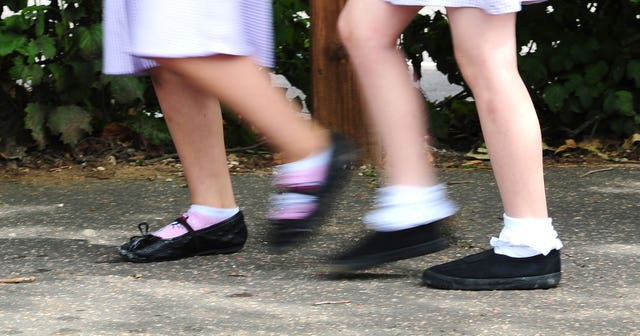
Clive Bull 1am - 4am
2 September 2020, 00:04

Companies have 12 months to ensure they adhere to the data regulator’s Age Appropriate Design Code.
Firms have been told they have a year to ensure their services make protection of children’s data a priority or face enforcement action including fines.
The Information Commissioner’s Office’s (ICO) Age Appropriate Design Code instructs companies to follow 15 measures, but what are they?
1. Best interests of the child
This should be a primary consideration when designing and developing online services likely to be accessed by a child.
2. Data protection impact assessments
Firms should “assess and mitigate risks to the rights and freedoms of children” who are likely to access an online service, which arise from data processing.
They should take into account ages, capacities and development needs.

3. Age-appropriate application
A “risk-based approach to recognising the age of individual users” should be taken.
This should either establish age with a level of certainty that is appropriate to the risks to the rights and freedoms of children that arise from data processing, or apply the standards in this code to all users instead.
4. Transparency
Privacy information provided to users “must be concise, prominent and in clear language suited to the age of the child”.
5. Detrimental use of data
Children’s personal data must not be used in ways that have been “shown to be detrimental to their wellbeing, or that go against industry codes of practice, other regulatory provisions or Government advice”.
6. Policies and community standards
Uphold published terms, policies and community standards.

7. Default settings
Settings must be set to “high privacy” by default.
8. Data minimisation
Collect and retain “only the minimum amount of personal data” needed to provide the elements of the service in which a child is actively and knowingly engaged.
Give children choices over which elements they wish to activate.
9. Data sharing
Children’s data must not be disclosed, unless a compelling reason to do so can be shown.
10. Geolocation
Geolocation tracking features should be switched off by default.
Provide an “obvious sign for children when location tracking is active”.
Options which make a child’s location visible to others must default back to off at the end of each session.
11. Parental controls
Children should be provided age-appropriate information about parental controls.
If an online service allows a parent or carer to monitor their child’s online activity or track their location, provide an “obvious sign to the child when they are being monitored”.
12. Profiling
Switch options which use profiling off by default.
Profiling should only be allowed if there are “appropriate measures” in place to protect the child from any harmful effects, such as content that is detrimental to their health or wellbeing.
13. Nudge techniques
Do not use nudge techniques to “lead or encourage children to provide unnecessary personal data or weaken or turn off their privacy protections”.
14. Connected toys and devices
These should include effective tools to ensure they conform to the code.
15. Online tools
Children should be provided with prominent and accessible tools to exercise their data protection rights and report concerns.